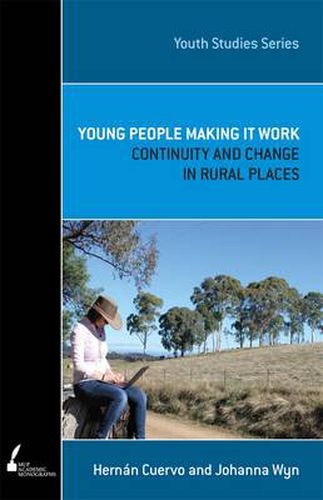Readings Newsletter
Become a Readings Member to make your shopping experience even easier.
Sign in or sign up for free!
You’re not far away from qualifying for FREE standard shipping within Australia
You’ve qualified for FREE standard shipping within Australia
The cart is loading…






Young People Making it Work examines a generation’s lives in rural Australia over the last two decades. Against a backdrop of dramatic social, economic and environmental change, the book tells the story of how a generation of young people have strived to remain connected to the people and places that matter to them. It transcends the assumption that rural places are one of deficit and disadvantage to focus on the ways in which powerful narratives of belonging are conceptualised.
Now aged in their late thirties, these are participants in the Youth Research Centre’s Life Patterns longitudinal study who left school in the early 1990s. They are members of generation X, and like their peers in urban places, they have used education to achieve their goals. Their stories reveal the powerful influence of both family and place on the decisions they have made since leaving secondary school. Cuervo and Wyn draw on contemporary theory from sociology, cultural geography and youth studies to provide new insights about youth transitions and young adulthood that are relevant not only to the rural context but to all young people.
$9.00 standard shipping within Australia
FREE standard shipping within Australia for orders over $100.00
Express & International shipping calculated at checkout
Young People Making it Work examines a generation’s lives in rural Australia over the last two decades. Against a backdrop of dramatic social, economic and environmental change, the book tells the story of how a generation of young people have strived to remain connected to the people and places that matter to them. It transcends the assumption that rural places are one of deficit and disadvantage to focus on the ways in which powerful narratives of belonging are conceptualised.
Now aged in their late thirties, these are participants in the Youth Research Centre’s Life Patterns longitudinal study who left school in the early 1990s. They are members of generation X, and like their peers in urban places, they have used education to achieve their goals. Their stories reveal the powerful influence of both family and place on the decisions they have made since leaving secondary school. Cuervo and Wyn draw on contemporary theory from sociology, cultural geography and youth studies to provide new insights about youth transitions and young adulthood that are relevant not only to the rural context but to all young people.